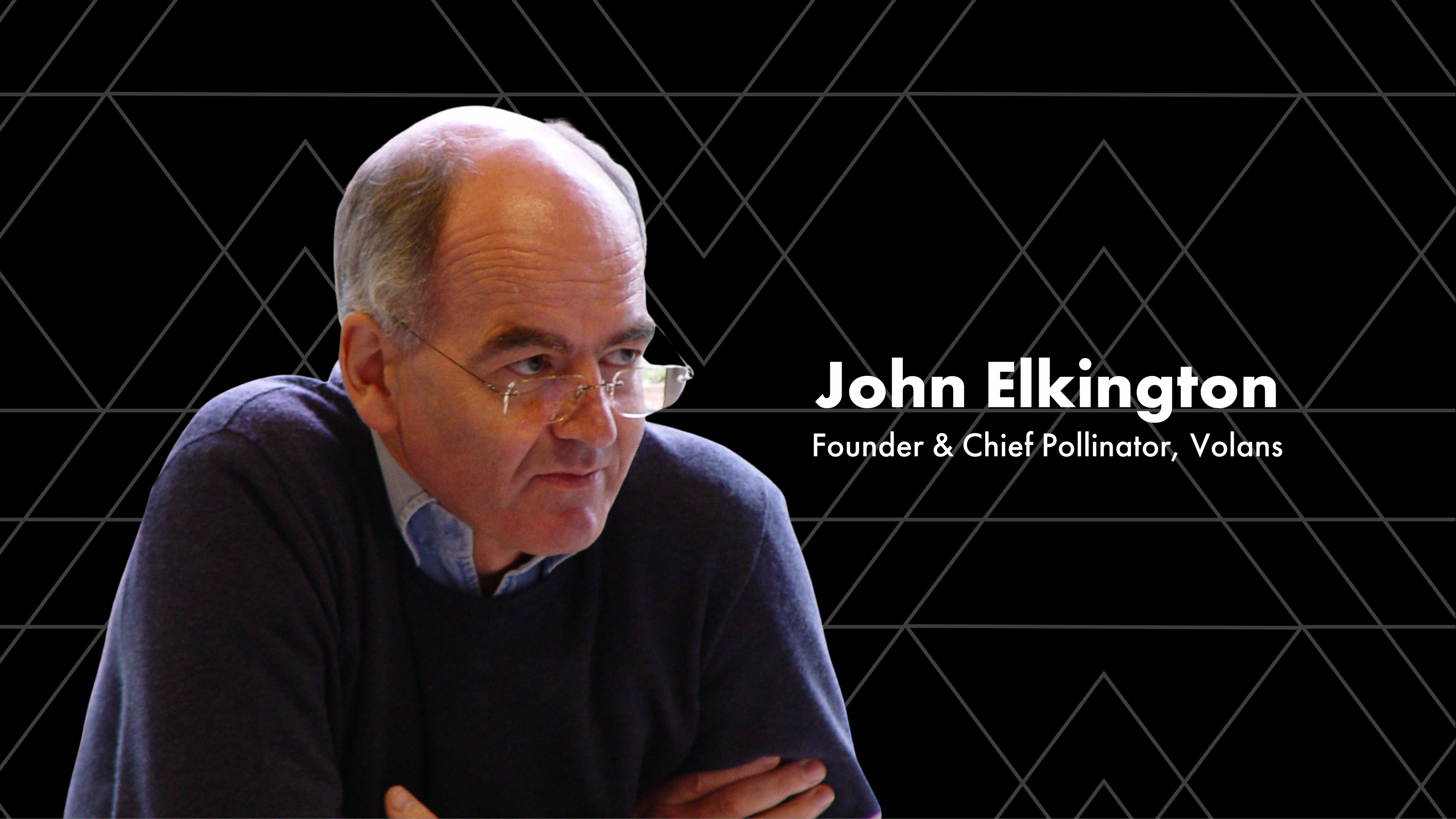
The latest in Forum’s Future of Sustainability series sees Forum’s Co-Founder, Jonathon Porritt, in conversation with John Elkington, Founder and Chief Pollinator at Volans and one of the original founders of the sustainability movement in Europe.
Here, John reflects on some of the shifts he has witnessed in the last 25 years, starting with the rise and more recent decline of globalisation, and the sense that the current incarnation of the capitalist system might be entering a period of ‘decomposition’. Bringing his historical perspective and in-depth knowledge of dynamic trends today, John outlines the ‘existential crisis’ for capitalism and how he sees elements of a ‘new order’ emerging.
He looks back further to consider the influence of green consumerism and the concept of the ‘triple bottom line’ – both of which he gave birth to – and of the need to move beyond them into a new, ambitious form of business responsibility for resilience, regeneration and systemic change.
Elkington considers the possibility that society might be moving towards a period of growing conflict, with military tensions rising, and populism and autocracy gaining ground at the expense of democracy. He acknowledges that, while climate change will exacerbate these trends, they also have potential to galvanise the reinvention of capitalism, drawing on new business models and technologies based on regenerative principles.
Such rebirth, he argues, will only be possible if supported by a ‘pan-generational compact’, bringing young people and elders together in a shared endeavour to tackle this century’s challenges.
This is a longer read than many in our series in order to capture the rich conversation during which many wide-ranging topics were covered: the history of business sustainability, whether capitalism can be reinvented, and the roles of consumers, young and old citizens, and even sustainability gurus themselves in driving change.
About John
John Elkington has worked in sustainability for a little short of half a century, playing a central and hugely influential role in influencing business to take environmental issues seriously. In 1978, he co-founded Environmental Data Services (ENDS), and went on to launch SustainAbility – the first consultancy to work directly with business on environmental issues. He coined the term ‘green consumer’ and co-wrote The Green Consumer Guide (1988). Six years later, he invented the concept of the ‘triple bottom line’, which formed the basis for many companies’ engagement with sustainability. In 2008, he founded Volans, an advisory company now specialising in “making business sense of regeneration”.
He has addressed over 1,000 conferences, served on 70 boards or advisory boards and won numerous awards. In 2009, a CSR International survey of the Top 100 CSR leaders placed John Elkington fourth: after Al Gore, Barack Obama and the late Anita Roddick of the Body Shop, and alongside Muhammad Yunus of the Grameen Bank.
All opinions expressed by interviewees are their own and do not necessarily reflect the position of Forum for the Future.
The dawn of deglobalisation
Jonathon: Our starting point for all these conversations is to look back over the last quarter century or so, and reflect on what have been the major changes. So if I ask you that question, what would you say have been the really striking developments…?
John: Well, the late 90s was a period of very intensive globalisation. That was after the collapse of communism, when capitalism was on a roll, and thought that the future was its to control. Now that was contested, certainly, but it felt that globalisation was the future.
And now we’re in a period where the geopolitical and macroeconomic orders we’ve got used to, and in some cases grown up with, are all wobbling.
They’re showing very serious signs of coming apart, including in the UK.
We could even be witnessing the start of a period of ‘deglobalisation’.
We’re also seeing the fragmenting of the generational compact, if it ever existed: the sense that older people will do the best for younger people and vice versa. Add the climate emergency into the mix, and I think there is a very real and growing risk that we’ll see some aggravated intergenerational tension.
So is this just simply a temporary glitch? Or is it, as I believe, [evidence laid out in Green Swans] that we’re going through a U-bend in our history, where an old order decomposes much faster than we might have imagined, and other orders start to self-assemble? A period where the challenge for people like us is very different from simply advising individual companies and government departments to tweak the system?
Instead, as the system starts to break up around us, [we have to ask] now what? What are we now trying to build? And I find that both exciting and terrifying in equal measure.
Jonathon: Was there a point when the momentum for globalisation began to slow? Was it the financial crisis in 2008? Or was it only brought home to us all with COVID?
John: There’s no question that COVID brought it clearly into view, but it had been building for a while. People with extended supply chains, into China for example, had become a little bit agitated about what was happening in that part of the world. I think the pandemic has been the moment where people just woke up and thought, ‘Oh, this isn’t working terribly well…’.
Jonathon: Yes, but we did say that after the financial crash; we did say, ‘That brings this phase of capitalism to an end – we can’t possibly go back to what it was like before’. And yet unerringly we did go back to it. The powers that be made such a concerted effort to take us back to some of those false securities that we were left wondering whether we’d learnt anything at all.
John: Yes, I think there was a pernicious effect of the bail out of financial institutions, [leading people to feel], ‘It’s OK, we can take idiotic risks and at some point the government will wade in and save us’….
But I think for many younger people, that was the moment they just felt betrayed by the system. They didn’t feel that they could trust the politicians in bed with capitalists. That feeling could be the springboard for the next round of change, or it could undermine those prospects because people may say, ‘Oh, it’s just not worth trying – this is a corrupt system and it’s dying’… I don’t know which way it’s going to go.
Jonathon: So I love this word ‘decomposition’. I’m fascinated to see it in those terms, that bits of the system are just sort of falling apart or putrefying in front of our eyes… And if so, how do you track that? Are you able to measure it, or is it more a generic sense that this is just what the current reality looks and feels like?
John: Well, the simple answer is, no, we can’t exactly measure any of this. It’s not a science. Some of this is intuition. It’s based on a study of history, which was always my favourite subject at school, and a sense that there are [historical] cycles; there are rhythms shaping what we do as human beings. And in terms of evidence, I listen to what people are saying in boardrooms and C-suites in different parts of the world. But ultimately it is intuitive: a sense that there is something deeply broken in the current system, and therefore it’s only a matter of time before it does indeed decompose in front of our eyes. Then the question is: can we really steer this in the right direction, even shape the process? I think we can.
The triple bottom line – and after
Jonathon: Let’s talk about your idea of the triple bottom line [1], and how that evolved. Because in the early days of Forum for the Future, we were its beneficiaries. We could talk about sustainability to our very new and nervous partners through the lens of the triple bottom line. It worked really well, and led to elaboration of a business case for sustainable development – a bottom line based approach…
John: …and multiple forms of capital [2], too.
Jonathon: …multiple forms of capital, yes, and so on and so forth. It was great. There was a lot of real intellectual commitment to make a framework for companies that was properly coherent and operational. And working through that business case with them, [pointing out] how many ways they would benefit from getting good at all of this – it was incredibly powerful, and Forum was definitely able to use all of that to good effect.
And now you’ve issued your ‘recall notice’[3]… So now that you are in the business of urging people not to use the triple bottom line anymore, and even getting a tiny bit grumpy…
John: [laughs] Grumpy? Me?
Jonathon: Yeah, you, [laughs]…grumpy with people who are still basing their thinking on pretty primitive triple bottom line type stuff – now that’s happened, can you just give me a sense [of how the concept evolved] from 1994 to that recall moment, which must have been quite a big, symbolic moment for you.
John: Well, when I came up with the original idea, it started off as the triple win-win-win-win – and it had an astounding impact for quite a period of time, so I do think it was useful. Particularly when you compare it to what was there beforehand [in sustainable business concepts], such as eco-efficiency. There was nothing wrong with that, but it was just simply the idea that you can save or make money by doing the right thing on energy, resources, pollution or whatever. Then the triple bottom line came along, and it said, it’s not just the financial savings and it’s not just the direct environmental impacts that you have, but it’s [about the wider] economy, so that’s a bigger story, and it’s [about] social impact too. Plus it’s much bigger than just your local footprint – it’s about the biosphere, about life on earth. So it was a slightly different framing, to put it mildly.
And I’m not giving up on it. Anyone who understands business knows that a product recall is not saying, ‘this particular product is completely useless’. It’s saying, there is a dysfunction, it’s been called to our attention, and now we’re going to correct it and then put it back out into the market. So just to be clear, I’m totally happy that, for example, B-corporation companies are being audited against the triple bottom line.
One of the things that happened when it first launched was that everyone and their donkey was suddenly coming up with quadruple bottom lines and quintuple ones and, you know, where do we go after that?! And when the multiple capitals thing came along, I welcomed them as well. But – I don’t know about you – I can only really remember three things. Ten commandments I just screw up routinely because I just can’t remember a whole list of things you’re not meant to be doing!
Anyway, the main issue [with the triple bottom line] is a framing problem. People have seen it as being about responsibility… But if you’re in [that] frame, then in a sense you’re trying to ensure that everything you do is responsible, and that very, very quickly gets you into trade-offs – not into integrated solutions.
[After ‘recalling’ the triple bottom line, I’ve started to talk about] Responsibility, Resilience and Regeneration.
If you listened to politicians, city mayors and CEOs, over the last two or three years, they’re all talking resilience because everything they’re dealing with is wobbling – their economies, their societies, their communities, their supply chains. And you can’t build back resilience into these systems without regenerating them, without investing in their health, wellbeing and productivity over the course of time.
When we set up Volans[4] back in 2008, [one of the things we were talking about] was system change. And back then, I don’t think they had a clue what we were talking about. Yet now you find business leaders routinely talking about the need for system change.
The ground is shifting. The question is, will it go far enough, fast enough, and in the right direction? And I think a lot of that depends on the rest of us – and on governments as well. God help us!
Jonathon: One rare area where you and I have had less alignment over the years is the role of the consumer. As well as the various green consumer guides that you did early on, you have stuck to a premise that the consumer is a critical part of the total change story, and without factoring in the role of the consumer, it’s quite difficult to factor in the role of companies, because companies are those who are addressing consumers. Where are you now on that one?
John: I’ve sometimes described myself as strategically opportunistic. And the prime focus of much of what I’ve done since we founded Environmental Data Services back in 1978 was to try and break into the world of business, and then to influence how business thought about all this sort of stuff. The green consumer idea came to me in 1986. I did an exhibition at the Design Centre in London, called The Green Designer, with all sorts of products that were designed with environmental performance in mind… And in the exhibition booklet I included ten questions that designers should ask themselves, and the last one was: [will it] appeal to the green consumer? This was the first time I’d ever used the phrase. Then came The Green Consumer Guide[5]. It sold something like a million copies in 18 months, and it had a ferocious impact on the Unilevers and Proctor & Gambles and so on of this world. They were basically in business to serve the consumer, so this was a challenge from an angle they hadn’t expected and weren’t used to dealing with. The consumer hadn’t shown any great interest, and then – Boom! And I think that spike of interest lasted about three to four years, and the NGOs managed it quite effectively.
But I came to recognise that consumers are shock troops. You can mobilise them for short periods, but you exhaust them very quickly if you require too much of them.
So we played that game for as long as we could, and then more or less dropped it. Do I now believe consumers aren’t important? No, because they are the pumping heart of our modern economies. And unless we can periodically mobilise them in the right way, I don’t think the capitalist system is going to be remotely as responsive as we would wish.
Jonathon: I think consumers are best at being mobilised to stop the things they have decided are bad. But sustaining their commitment to do the good thing, the right thing, over a longer period of time, that is a much harder trick, and one that brands are still struggling with today.
John: I think the ones that were successful were the early brands in that space, like Ben and Jerry’s, Patagonia, Body Shop and so on. But in the end, none of them were really big enough, and quite a number were bought out. And I don’t think it’s an accident that big companies haven’t been a success in driving [green consumerism] because they have so much else that doesn’t fit with that particular bill.
Jonathon: There are a lot of divergent views within the sustainability movement about the degree to which capitalism can be sufficiently transformed to enable it to deliver a sustainable future… But if you look at the decomposition we’ve just flagged, is capitalism itself likely to be one of the victims? Will its key elements be questioned to the point where it no longer exists in a recognisable form? Do you see it as big and bold as that?
I don’t think so, because this is what capitalism periodically does: it falls flat on its face and then it goes through some sort of metamorphosis and it comes back stronger than ever.
John Elkington
Now, nothing about that is guaranteed. But if I look at the sort of technological thinking [and] business models that are emerging, at the way values [are shifting] in the wider business world, I think there’s a strong chance that we could actually rebuild capitalism in a very, very different configuration.
Jonathon: I couldn’t agree with you more. Genuinely I think the potential is there. But it’s so problematic that this coincides with [rising populism] and burgeoning autocracy in many parts of the world, and the near implosion in US democracy. All of these forces are cumulatively speaking incredibly disturbing, and make it harder to see how a capitalist system could be reborn with a lot more of the benign characteristics that we’re going to ask of it.
John: I agree… Let me go dark now, and then we can go a bit brighter. You think, why did Bretton Woods in 1944 get us to the point where we could actually think really long-term and create a system that, within its own terms, worked for so long? And the reason was people had been through was an existential crisis. They’d been through the war, with tens of millions killed. When you go through these periods of an old order declining, decomposing, whatever we call it, there’s always a war in the midst of that. Somebody once described wars as the human species thinking out loud, very loudly. And often at the end of a war, a new order emerges. Today I think we’re much closer to a major [military] exchange of some sort than we might like to think – it may be China and Taiwan, there’s no shortage of candidates … Now, I’m not remotely prescribing warfare.
But my intuition, again, is that we’re moving towards something deeply, deeply unsettling and painful. The question is, will leaders be able to sense that and move fast enough to head it off?
History suggests no, but – rather stupidly perhaps – I believe that maybe – maybe – we can actually do something here.
But again it goes back to the intergenerational contract, because if we can’t persuade younger people that these are societies worth investing their time and their effort in, democracy will, as you say, shrivel away…
Jonathon: Indeed. One of the most disturbing data sets to emerge from young people in the USA is [the one that shows] how many have lost faith in democracy as a way of providing the security and frameworks in which to prosper as individuals and communities. That’s a very chilling consequence of the dysfunctionality of the American system. And in a way, America’s got to [work through] its institutional and political civil war before it can be party to the resurgence of more progressive ideas in the way capitalism is shaped.
John: I’ve called it an undeclared civil war and I think it’s going to get a lot worse before it gets any better, if indeed it does…And yet, it’s really striking that some of the leading thinking and experimenting on the regenerative economy is happening in America.
Jonathon: Meanwhile we’re facing the climate emergency, which hangs over so many other challenges that we’re trying to deal with and which may well cut short the amount of time that we have to do so. How are you positioning now around the climate emergency in itself?
John: I wrote a report on climate change back in 1978, and since then, some of the scientific predictions which have emerged – like the way in which the Gulf Stream might fail and push northern Europe back to Siberian conditions – are truly scary. So you can’t be totally detached. But at the same time, looking at our capacity as a species to understand that sort of level of crisis and respond to it in a semi-intelligent way, there is some part of me that is still hopeful.
You know how in The Sun Also Rises, [Ernest] Hemingway talks of one of his characters going bankrupt “gradually, then suddenly”? And now the Silicon Valley folk talk about a ‘gradually then suddenly’ world. Well I think we are in one of those. But the question is, does that take us completely off the rails, or does it help to put us on a very, very different track?
I genuinely believe that if we can sort the intergenerational compact issue, and can engage with the new economy people, the people driving these new technologies and business models, then we can have a radically greater influence [for the good] than if we were just looking backwards, trying to deal with oil, coal and automboiles. We’ve got to deal with that as well, but let’s see fossil fuels as a dying sector [and engage with what’s emerging].
Meanwhile, I do feel existentially challenged. I look at younger people and I see the extent to which they are increasingly suffering from eco-anxiety. And I remember the nuclear terror in the 50s and 60s – my father was flying missions over Christmas Island monitoring the impact of nuclear testing. So even at seven or eight, I had a sense of this imminent existential threat. And I think the climate challenge is beginning to feel really imminent for people. I’ve got two friends in different parts of the world – one in Australia and one in California – who had their houses burned down.
Jonathon: But have you constructed a series of defensive redoubts to stop you from fully absorbing just how far things have gone? I ask because sometimes there is a suggestion that because our work is all about seeking out solutions and synergies and ways forward, we don’t allow ourselves to be as open to the depth of that grief and fear of the future. Do you ever play with the possibility that you are protecting yourself in order to carry on doing the work that you do?
John: Maybe this is self-serving, but I actually think the worst thing that people like us could do is to take our hands off the wheel and say, this isn’t going to work. Because then you get a very different set of political dynamics, and your concerns about democracy start to go off the curve because people lose hope.
And I genuinely still believe that if we can crack some of this stuff, progress is still achievable. I don’t think we’ll get there without having some pretty major reverses along the way… But I was born an optimist, and in any case, if you’re going to influence people in top teams in business and so on, you can’t just go in there and do an existential howl…
Jonathon: For my last question I want to come back to something you’ve referred to on a couple of occasions, which is the idea of a new intergenerational compact. It’s a big idea, and one that I entirely subscribe to myself. But are there practical steps along the way to building it?
John: I think we should be working on it very actively, paying a lot more attention to it than perhaps we do. When Extinction Rebellion erupted, I did a certain amount trying to support that group of young activists. It became a little bit problematic at times, but nonetheless I think they’ve had a useful influence overall.
I see people of my age – I’m 72 – saying they’re going into retirement, arguing, ‘We’ll hand over to the younger people to sort this out – we tried and we failed.’ And I think that is so dangerous. I think we’ve really got to work out this pan-generational compact and work really intensively together.
And I don’t think we can simply wait for the younger generation to reach out to older people and say, we want a compact. We’ve got to create a process where that compact is in play and we’re inviting them into that process. But then [you have to ask], who are the young people who come into that sort of process? There is a risk that they’re [just] from high net worth families, or certainly those who have had an education.
So how do we do this so that it’s really legitimate? Maybe it has to be an open-source approach, iterated over a period of time… Interestingly I’m doing some work [with a client] who are pulling in young people from around the world and [asking] what it is like in the Democratic Republic of Congo to be dealing with these sorts of issues? What is it like in Pakistan? Do you have any agency? Do you have any sort of voice?
I think we need to do some of that exploratory work, but beyond that, we need to have a political process. And as you know, I’ve always been slightly gun shy of politics with a capital P – or even a lower case one. But now, this is political.
Jonathon: It is, yes.
John: And it is absolutely up to us…
I think we’re right on the cusp of things potentially changing. But the question is, do they go in our direction – or somewhere else?
[1] This was a phrase coined by Elkington in 1994, expressing the then novel concept of accounting for the social and environmental as well as purely financial, aspects of a company’s performance.
[2] Typically expressed as consisting of natural, human, social, manufactured and financial capitals, sometimes with the addition of intellectual capital.
[3] In 2018, Elkington published an article in the Harvard Business Review, announcing “a strategic recall” of the concept “to do some fine tuning”.
[4] A specialist sustainability advisory founded by Elkington.
[5] Co-written with Julia Hailes and first published in 1988, the Guide offered consumers advice on how to make greener choices across a wide range of products, “from shampoo to champagne”.
Watch the interview to find out more
Watch this space

The next in our Future of Sustainability: Looking Back to Go Forward series sees Dr. Agnes Kalibata, UN Special Envoy to the Food Summit, explore among other themes, the global food challenge and how solving it could be the key to unlocking wider climate and social crises.
About the Future of Sustainability: Looking Back to Go Forward
Produced by international sustainability non-profit, Forum for the Future, the Future of Sustainability: Looking Back to Go Forward is a unique opinion and commentary series set to explore lessons learned from the last 25 years in the sustainability movement and what they mean for the future.
Based on new and exclusive insights from diverse voices across the sustainability movement, we’ll examine where we have succeeded and where we have failed in creating real change. We’ll consider how the world is responding to today’s multifaceted challenges and opportunities, and what pivots might be needed if we’re to deliver at scale and pace. Lastly, we’ll look forward – exploring how we can reframe the goals of the system, reset our ambition, and encourage the adoption of new mindsets and approaches critical to creating what’s really needed: a truly just and regenerative future.
With thanks to our partners
Looking Back to Go Forward was made possible thanks to the generous support from our partners: Laudes Foundation, GSK Consumer Healthcare, Target, M&S, Capgemini, Bupa, 3M, the Cosmetic Toiletry & Perfumery Association (CTPA), Burberry, Olam Food Ingredients, and in particular our headline sponsor, SC Johnson
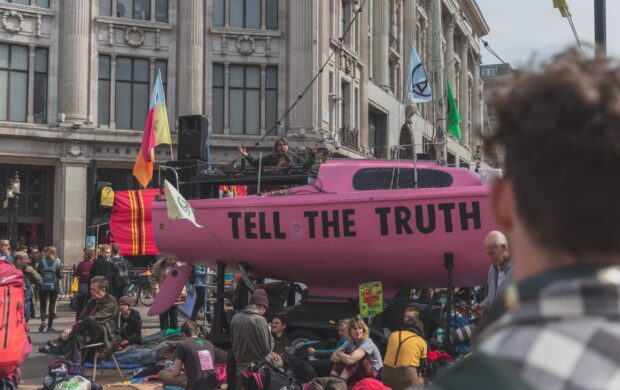
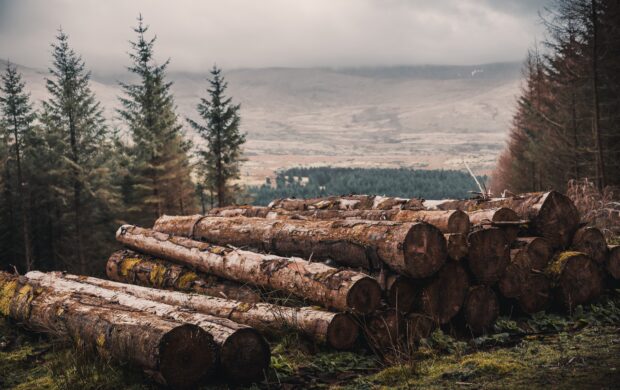

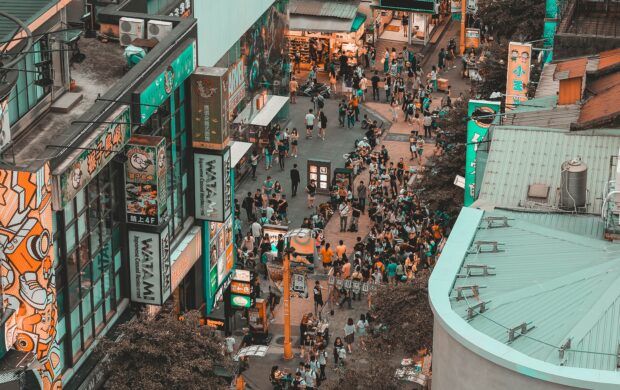
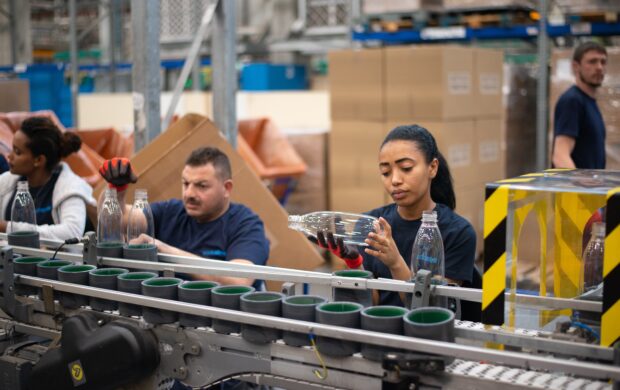


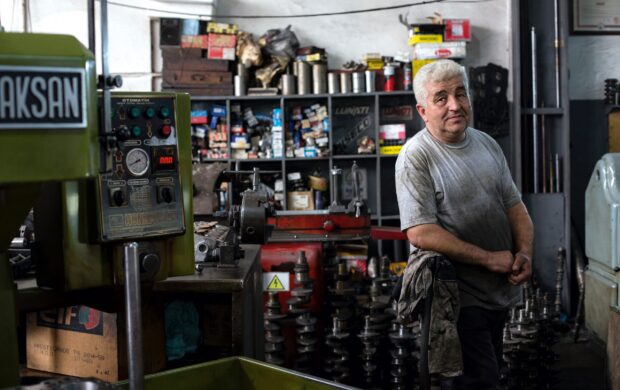



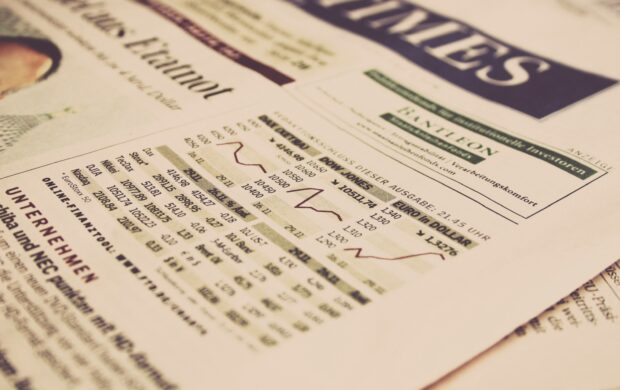
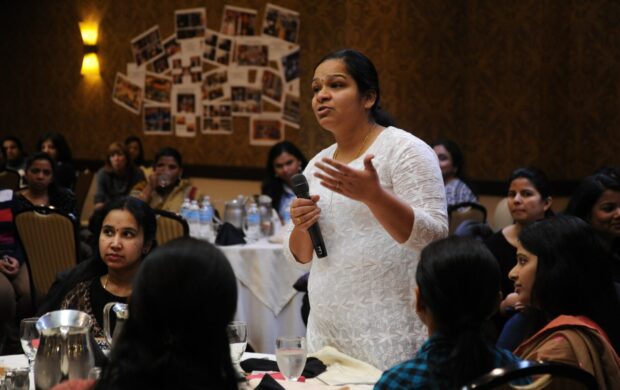




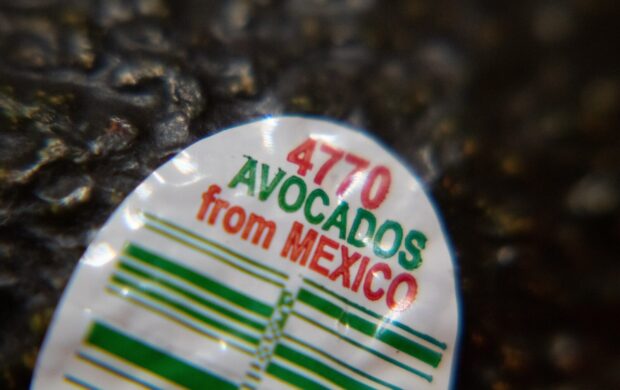




Join discussion